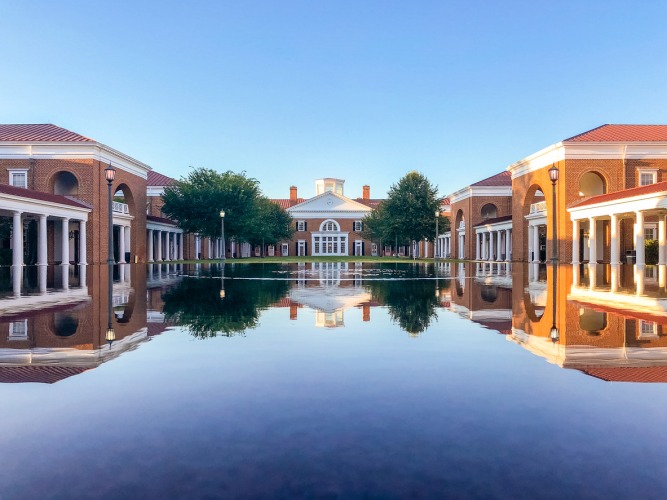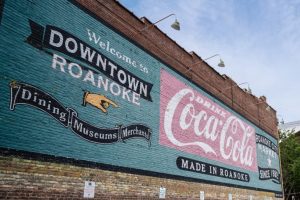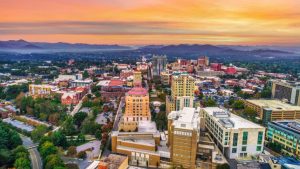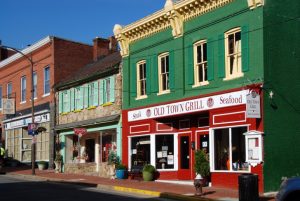 Virginia : Safety by City
Virginia : Safety by City
- Alexandria
- Arlington
- Blacksburg
- Charlottesville
- Chesapeake
- Chincoteague Island
- Danville
- Hampton
- Leesburg
- Luray
- Lynchburg
- Newport News
- Norfolk
- Petersburg
- Portsmouth
- Richmond
- Roanoke
- Staunton
- Virginia Beach
- Waynesboro
- Williamsburg
- Yorktown
Charlottesville, Virginia, isn’t just another city in the picturesque foothills of the Blue Ridge Mountains.
This city is rich in history, culture, and natural beauty.
Founded in 1762, it played a significant role in American history, being home to two U.S. Presidents: Thomas Jefferson and James Monroe.
Jefferson’s influence is particularly profound, as his meticulously designed University of Virginia and his Monticello estate remain prominent landmarks.
The city’s vibrant downtown area, centered around the Historic Downtown Mall, features an array of shops, restaurants, and performance venues, creating a lively atmosphere.
The local food scene is exceptional, with farm-to-table dining experiences that highlight the region’s agricultural bounty.
The Monticello Wine Trail was honored by Wine Enthusiast’s 2023 Wine Star Awards as the Wine Region of the Year.
Charlottesville’s blend of history, culture, and natural beauty makes it a compelling destination for travelers seeking both relaxation and adventure.
Plus, Shenandoah National Park and the famed Blue Ridge Parkway are just a short drive away.
Warnings & Dangers in Charlottesville

OVERALL RISK: LOW
There’s a low risk in Charlottesville, but that’s more to say there’s an average risk. The city is facing gun crime and theft challenges, but common sense and basic street smarts should avert the risks. Plus, there’s so much amazing history here to see in safe spaces.

TRANSPORT & TAXIS RISK: LOW
Getting around Charlottesville is convenient, and there are multiple options. The CAT bus system offers extensive public transportation. A trolley runs between downtown and the university. Taxis and rideshares like Uber and Lyft are readily available. For more flexibility, rental cars can be found at various locations. You can also get to Charlottesville by Greyhound or Amtrak. All options are low-risk.

PICKPOCKETS RISK: MEDIUM
Charlottesville sees about a dozen pickpockets or purse snatchings each year, which doesn’t sound like much, but it’s one of the higher numbers I’ve seen in similar-sized Virginia cities. In addition, theft rates are notoriously high here, so this is a medium risk.

NATURAL DISASTERS RISK: MEDIUM
Natural disaster risks include earthquakes, hurricanes, tropical storms, floods, wildfires, and occasional tornadoes. Preparedness involves understanding local risks, having an emergency plan, and staying informed through reliable sources. Treat this as a medium risk.

MUGGING RISK: LOW
About 35% of all robberies are highway robberies, but the overall robbery rate is 30% lower than the national average. The risk is low, but keep it that way by not walking around unknown parts of town after dark alone. Stay in the areas designated for tourists.

TERRORISM RISK: LOW
The terrorism risk in Charlottesville is considered low, but vigilance remains essential. The city employs robust security measures and emergency preparedness plans to address potential threats. Charlottesville was notoriously connected to the white supremacist rally in 2017. This example shows that domestic terrorism is always a concern in the U.S.

SCAMS RISK: LOW
Check local law enforcement social media sites for the latest scams. The local Better Business Bureau office and the state Attorney General’s office will have common scam tactics and protection advice. The most common scams range from spoofed phone numbers to fake violin players begging for money. The risk is low, but be aware of the common tactics to keep it low.

WOMEN TRAVELERS RISK: LOW
Women's safety risks in Charlottesville are relatively low, but it's important to stay aware of your surroundings and avoid being out at night alone if you can.

TAP WATER RISK: LOW
The U.S. has strict standards for tap water per the Safe Water Drinking Act. Communities are required to provide a Water Quality Report (Consumer Confidence Report) once a year by July 1. The 2023 report shows all standards were met or exceeded.
Safest Places to Visit in Charlottesville
The website “Visit Charlottesville” covers the city and Albemarle County.
A visitor’s guide is available to download, but you are required to give personal information to get the download option.
Charlottesville has two UNESCO World Heritage Sites.
One is the University of Virginia, where you can walk through the stunning campus founded by Thomas Jefferson.
Visit the Academical Village, which includes the Lawn, flanked by unique pavilions housing students and faculty, and the iconic Rotunda, modeled after the Roman Pantheon.
While you’re there, explore the Fralin Museum of Art at the University of Virginia, featuring a diverse collection of art from ancient to contemporary.
The other UNESCO Site is Thomas Jefferson’s home, Monticello.
Book Monticello tickets as early as possible since the guided tours often sell out.
It’s also worth noting that family-friendly tours are available specially designed for kids ages five to 11.
Sample local wines at Jefferson Vineyards, located near Monticello.
Enjoy tastings of their award-winning wines in a picturesque setting.
Just outside of town is Highland, the home of James Monroe, the fifth President of the United States.
Highland offers guided tours, beautiful grounds, and insights into Monroe’s life and legacy.
Step back in time at Michie Tavern, an 18th-century inn offering traditional Southern fare, tours of the historic building, and a charming gift shop.
Downtown Charlottesville is a National Historic District, filled with lively shops and restaurants in a pedestrian-focused open-air mall.
For a list of activities, events, parking, and more, visit friendsofcville.org.
There are great spots to check out near downtown, including the vibrant IX Art Park, a community space filled with colorful murals, sculptures, and interactive art installations.
The Virginia Discovery Museum offers interactive exhibits and hands-on activities.
Ragged Mountain Reservoir in Virginia offers serene natural beauty, ideal for hiking, birdwatching, and fishing.
Surrounded by wooded trails, it provides scenic views and a peaceful escape for nature enthusiasts.
NOTE:
There are several Ragged Mountain locations in New England, including Connecticut and New Hampshire.
Be sure you’re looking at Ragged Mountain State Park in Charlottesville when doing research.
Paddling the Rivanna River offers a relaxing and scenic adventure through Charlottesville’s lush landscapes.
Perfect for kayaking or canoeing, the river’s various sections provide either a smooth ride or a more robust adventure.
The James River is south of Charlottesville and is more suited for multi-day adventures on the water.
Places to Avoid in Charlottesville
Some of the areas with higher crime rates are the disenfranchised communities that the average tourist wouldn’t be visiting anyway.
I would recommend you call the police department to ask about the crime hot spots closer to your visit.
Downtown is one of the higher crime areas, but keep in mind that most of the violent crimes are between people who know each other.
There isn’t a problem with random acts of violence.
One of the things to avoid is aggressive panhandlers, generally connected to the homeless population.
Several appeals are working their way through the court system to determine where panhandlers can legally be.
That includes within 50 feet of the Downtown Mall intersections.
However, the rules could change by the time you visit, so I recommend that you research information to see where the rules stand.
Avoid areas where panhandlers are, or simply avoid making eye contact or talking to them.
If you’re inclined to donate, please give money to a homeless shelter or a group that helps people without housing get back on their feet.
Safety Tips for Traveling to Charlottesville
- Charlottesville has a local police department, which you can follow on Facebook @CvilleVAPolice. The phone number is (434) 970-3280, and the email address is ervinkl@charlottesville.gov if you have specific safety questions.
- Review the police department’s website for various crime data sources. You can read the annual report, check the interactive crime map, or see the latest news releases. Under the Crime Prevention section, you can get documents like a personal safety guide or a home security checklist.
- The city switched to a new emergency notification system in 2023. You should look for the CUA Alerts website and sign up there. Do NOT use the CodeRED system. The alerts are free and will send emails, text messages, or phone calls to the number you provide.
- Across the region, texting 911 is now possible, but it should only be used as a last resort. Do not attempt to send photos or videos. Just be as descriptive as possible with your text, including your location.
- The city has an Alert section on its website, which is another tool you should use for safety in Charlottesville. The difference between these alerts and the emergency alert system is minor but important. For example, the CUA Alerts might tell you a flood warning is underway. The city alerts could offer emergency shelters or sandbagging information.
- Those planning to use a bicycle or scooter in Charlottesville need to review the rules on the city’s website. Scoots and bikes can’t be used on the sidewalks, and specific parking areas are designated for these devices. If you see a vehicle illegally parked, call 1-855-VEO-2256 (1-855-836-2256).
- Swimming is not allowed in the Ragged Mountain Reservoir or any body of water that supplies drinking water to nearby communities. Fishing, non-motorized boating, and paddling are allowed.
- Fishing requires a license in Virginia, and you can get that online through the Go Outdoors Virginia app. Boating and hunting rules are detailed in the app as well.
- The University of Virginia has a police department, and you can find plenty of safety information on the UVA Police Division website. Special alerts are available for emergencies that impact the campus, but the person signing up must have a UVA email address. From there, they can add family members.
- Follow @UVA_EM and @UVAPolice on X (Twitter) to get public-facing information about issues on campus. Students can also use the Guardian Safety App to allow loved ones to check in on them.
So... How Safe Is Charlottesville Really?
The violent crime rate in 2023 was 19% higher than the state average but 30% lower than the national average.
Virginia is considered the 8th Safest State in America.
In early 2023, Charlottesville Police were responding to one call of gun violence a day.
By the end of the year, those numbers were down.
Halfway through 2024, violent crimes were down 5% year over year.
Gun violence was cut in half.
The homicide rate of 2023 was particularly shocking, with six homicides.
Five of those happened within three months.
All homicides involved people who knew each other but still infuriated police trying to maintain law and order.
“You’re not gonna think it’s safe.
I get that.
And so, it’s up to use as a police department working in partnership with the community to address the root causes,” Charlottesville Police Department Chief Michael Kochis said in 2023.
“But I want to be clear about something.
You do not have the right to take the life of another individual because your feelings are hurt.
But if you do, we’re gonna use every resource available to us, whether it be local, state or federal resources, to make sure we bring you to justice,”
Theft rates are 96% higher than the national average.
The most common theft is from vehicles, largely due to cars being left unlocked or with valuable items left in plain sight.
In 2023, there was an average of one vehicle break-in each day.
About four cars were stolen each week, on average, a 53% increase from 2021.
Shoplifting was also up 123%.
Like many communities, Charlottesville is facing a police officer shortage.
At one point in 2023, the department was down 30 officers.
Charlottesville is a safe place to visit, but avoid the areas we discussed and keep your guard up.
There isn’t a trend of random acts of violence, but there is a trend of reckless behavior by criminals who don’t worry about people getting in the way.
How Does Charlottesville Compare?
| City | Safety Index |
|---|---|
| Charlottesville | 68 |
| New Orleans | 57 |
| Baltimore | 56 |
| Boston | 67 |
| Washington DC | 56 |
| New York City | 67 |
| Detroit | 56 |
| Niagara Falls (Canada) | 87 |
| Calgary (Canada) | 82 |
| Buenos Aires (Argentina) | 60 |
| Vancouver (Canada) | 82 |
| Cordoba (Argentina) | 61 |
| Toronto (Canada) | 81 |
Useful Information

Visas
All international visitors need either a visa defining the purpose of the trip (tourist, work, school, etc.) or a visa waiver. Start the process using the Visa Wizard module on the U.S. State Department website. You’ll quickly find out which one you need. Remember, your passport must be valid for at least six months after your trip, or you’ll need to apply for a new one. This is a crucial aspect of your travel preparation.

Currency
Only the U.S. Dollar (USD) is accepted in the United States. International airports usually have a currency exchange desk on site, while regional airports won’t. Your home bank offers the lowest fees. For those using credit cards, check to see if there’s a foreign transaction fee before you start racking up charges.

Weather
Charlottesville gets four full seasons, with cold (but not too cold) winters and hot, humid summers. Fall and spring are the best time to visit for mild weather and lower humidity. Pack bug spray, sunscreen, and comfortable outdoor clothing and shoes.

Airports
Charlottesville Albermarle Airpor (CHO) is just 10 miles from the center of town. American Airlines, Delta, and United provide flights to places like Charlotte, NC, Washington, D.C., Atlanta, GA, and LaGuardia, NY.

Travel Insurance
Travel insurance goes into effect as soon as you purchase it, allowing for emergency cancelations or rescheduling. Comprehensive insurance offers the best protection and peace of mind. Rental car insurance should include roadside assistance.
Charlottesville Weather Averages (Temperatures)
Average High/Low Temperature
| Temperature / Month | Jan | Feb | Mar | Apr | May | Jun | Jul | Aug | Sep | Oct | Nov | Dec |
|---|---|---|---|---|---|---|---|---|---|---|---|---|
| High °C | 7 | 9 | 14 | 20 | 24 | 29 | 30 | 29 | 25 | 20 | 15 | 9 |
| Low °C | -3 | -2 | 2 | 7 | 12 | 17 | 19 | 18 | 14 | 8 | 3 | -1 |
| High °F | 45 | 48 | 57 | 68 | 75 | 84 | 86 | 84 | 77 | 68 | 59 | 48 |
| Low °F | 27 | 28 | 36 | 45 | 54 | 63 | 66 | 64 | 57 | 46 | 37 | 30 |
Virginia - Safety by City
| City | Safety Index |
|---|---|
| Alexandria | 47 |
| Arlington | 77 |
| Blacksburg | 79 |
| Charlottesville | 68 |
| Chesapeake | 69 |
| Chincoteague Island | 77 |
| Danville | 76 |
| Hampton | 67 |
| Leesburg | 72 |
| Luray | 81 |
| Lynchburg | 77 |
| Newport News | 68 |
| Norfolk | 43 |
| Petersburg | 52 |
| Portsmouth | 51 |
| Richmond | 60 |
| Roanoke | 47 |
| Staunton | 77 |
| Virginia Beach | 77 |
| Waynesboro | 78 |
| Williamsburg | 78 |
| Yorktown | 82 |











